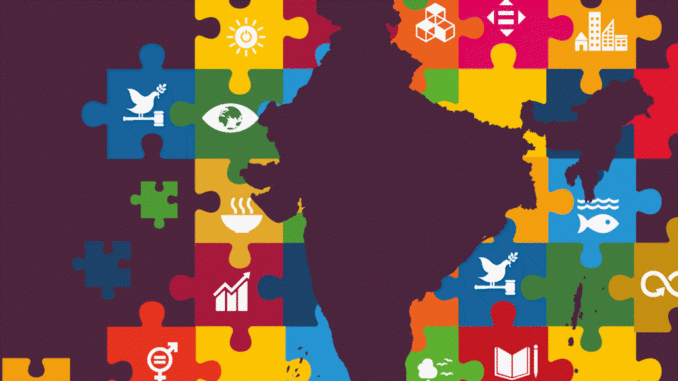India boasts a rich heritage of sustainability, embracing age-old customs passed down through the ages. Yet, it grapples with significant issues like a booming population, growing urban areas, and the impact of climate change.
Amidst these hurdles, optimism prevails for India’s sustainable future. The government prioritizes sustainability, and various pioneering companies and organizations are dedicated to crafting eco-friendly solutions.
5 Key trends of India’s sustainability
Explore the key trends shaping the future of sustainability in India:
- Embracing renewable energy: India’s substantial investment in solar and wind power is diminishing its reliance on fossil fuels, enhancing air quality.
- Promoting green cities: The nation is constructing eco-friendly cities with features like solar panels, rainwater harvesting, and green spaces to foster sustainability.
- Advancing sustainable agriculture: India is dedicated to cultivating more eco-friendly farming methods, emphasizing water conservation, reduced pesticide use, and improved crop yields.
- Promoting the circular economy: India is aligning with the circular economy model, emphasizing the reuse, repair, and recycling of materials to minimize waste and pollution.
- Raising awareness on sustainability: The Indian public’s increasing awareness drives demand for sustainable products and services, urging businesses to adopt greener practices.
India’s investment initiatives to tackle the future of sustainability
As the world’s third-largest emitter of greenhouse gases, India aims to slash its carbon emissions by 33-35% by 2030. The Indian government is actively pursuing sustainability through various investment initiatives:
- Committing $1 trillion to renewable energy by 2030.
- Allocating $500 billion for water conservation and management by 2025.
- Promoting public transportation via initiatives like the National Urban Transport Policy and the Smart Cities Mission.
- Offering financial incentives for businesses embracing sustainability, including schemes like Perform, Achieve, and Trade (PAT) and the National Clean Energy Fund.
These actions represent the evolving landscape of sustainability in India. Continued investment in sustainable development could position the country as a global leader in this crucial arena.
5 Sustainable Companies Leading the Green Revolution in India
In recent years, sustainability has emerged as a critical factor in the business world, with companies increasingly recognizing the importance of balancing economic success with environmental responsibility. Eco-friendliness and sustainability concern all industries. For example, Lottoland India planted 2 million trees back in 2021 and is still committed to achieving net-zero carbon emissions by 2040. SustainKart, India’s first marketplace for sustainable living, is another example.
Next, we share 5 Indian sustainable companies for inspiration:
- Tata Power Solar
Tata Power Solar, a division of the renowned Tata Group, is a pioneer in the solar energy sector in India. Committed to harnessing the sun’s power, the company focuses on developing solar solutions for residential and industrial applications. From rooftop solar panels to large-scale solar power plants, Tata Power Solar plays a crucial role in reducing the carbon footprint and promoting clean energy adoption nationwide.
- ITC Limited
ITC Limited, a diversified conglomerate, has been a frontrunner in integrating sustainability into its business model. The company actively promotes agroforestry, water conservation, and renewable energy initiatives. ITC’s commitment to sustainable agriculture practices has not only benefited farmers but has also contributed to the development of eco-friendly products, making a positive impact on both people and the planet.
- Infosys
In the world of Information Technology, Infosys stands out for its comprehensive approach to sustainability. The company has adopted a ‘circular economy’ model, emphasizing waste reduction and efficient use of resources. Infosys has implemented energy-efficient technologies, constructed eco-friendly buildings, and is dedicated to achieving carbon neutrality. Infosys is setting new benchmarks for sustainable practices in the IT industry through these initiatives.
- Suzlon Energy
As one of India’s largest renewable energy solutions providers, Suzlon Energy is at the forefront of the wind energy revolution. Specializing in designing, developing, and maintaining wind turbines, Suzlon plays a pivotal role in India’s transition towards clean and green energy sources. The company’s commitment to sustainable development extends beyond energy production, focusing on environmental conservation and community welfare. Suzlon Energy collaborates with over 15 firms worldwide across six continents.
- Wipro Limited
Wipro Limited, a global IT and consulting company, is committed to sustainability through its various green initiatives. Wipro strives to create a positive environmental impact by reducing carbon emissions and implementing energy-efficient technologies. The company actively engages in water conservation efforts and waste reduction and has set ambitious targets to increase its use of renewable energy. Wipro’s commitment to sustainability is ingrained in its corporate ethos, making it a notable leader in responsible business practices.
Conclusion
As the global community grapples with the challenges of climate change, sustainable companies serve as beacons of hope, showcasing that a commitment to sustainability is not just a moral imperative but also a smart business strategy. Through innovation, responsible practices, and a dedication to creating a better world, these companies contribute to a brighter and more sustainable future for India and the planet.










